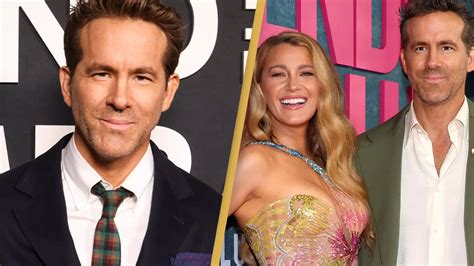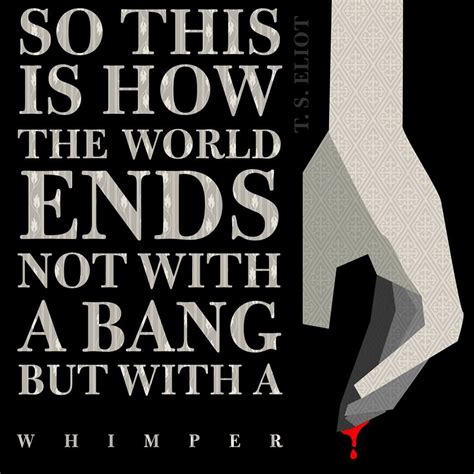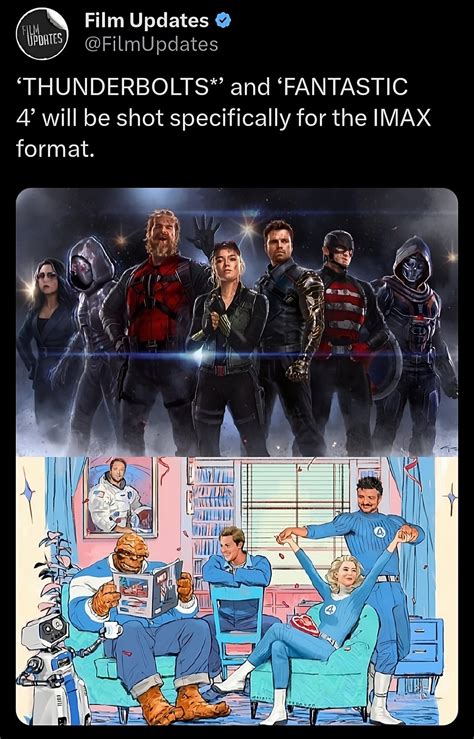
Blake Lively is facing criticism after a reported interaction with fans in New York City, with some social media users labeling her behavior as “rude” and “entitled.” The actress allegedly reacted negatively to fans attempting to take photos and videos of her, sparking a debate online about celebrity etiquette and the boundaries between public figures and their admirers.
Blake Lively is navigating a wave of online backlash following an incident in New York City involving interactions with fans. Allegations have surfaced that Lively responded unfavorably to individuals attempting to photograph and film her, leading to widespread discussion and criticism across various social media platforms. The controversy has ignited a debate regarding the expectations placed on celebrities, their right to privacy in public spaces, and the appropriate behavior of fans when encountering public figures.
The controversy began when accounts of Lively’s alleged reactions to fans surfaced online, primarily through posts on social media platforms like X (formerly Twitter) and TikTok. While specific details remain somewhat fragmented, the general consensus indicates that Lively appeared displeased with individuals who were attempting to capture images and videos of her without her explicit consent. Some reports suggest that Lively made verbal requests for individuals to cease filming, while others claim that her demeanor was generally dismissive and unfriendly.
These accounts quickly gained traction online, prompting a wide range of reactions from social media users. Some individuals defended Lively’s right to privacy and argued that she was justified in setting boundaries with fans who were invading her personal space. These defenders emphasized the constant scrutiny and lack of privacy that celebrities often face, suggesting that Lively’s reaction was a natural response to being constantly monitored and photographed.
Conversely, other social media users criticized Lively’s behavior, labeling it as “rude” and “entitled.” These critics argued that celebrities like Lively benefit from the support and attention of their fans, and that she should therefore be more gracious and accommodating when approached in public. Some critics went so far as to suggest that Lively’s alleged behavior reflected a sense of superiority and a disregard for the feelings of her fans.
The debate surrounding Lively’s alleged outburst has also touched upon broader issues related to celebrity culture and the relationship between public figures and their fans. Some commentators have argued that the incident highlights the increasingly blurred lines between public and private life in the digital age, where individuals are constantly subject to surveillance and documentation. Others have pointed to the pressures and expectations that are placed on celebrities, who are often expected to maintain a perfect image and interact positively with fans at all times.
Adding complexity to the situation is the lack of definitive video evidence or official statements from Lively or her representatives. Much of the information circulating online is based on anecdotal accounts and secondhand reports, making it difficult to ascertain the exact nature of the interactions that took place. This ambiguity has further fueled the debate, as individuals on both sides of the issue have interpreted the available information in different ways.
As the controversy continues to unfold, it remains to be seen how Lively will respond to the criticism and whether the incident will have any lasting impact on her public image. Regardless of the specific details of the situation, the incident serves as a reminder of the complexities and challenges that arise when public figures and their fans interact in the age of social media. The incident prompts important questions about privacy, respect, and the boundaries that should exist between celebrities and the public.
The situation also reflects the current climate in which celebrities are constantly under surveillance. Paparazzi, fan photos, and social media posts contribute to a near-constant documentation of their lives. This lack of privacy can lead to heightened stress and anxiety, potentially explaining, but not necessarily excusing, perceived negative reactions to public attention. Celebrities, like anyone else, are entitled to personal space and respect. However, their public persona often makes it difficult to delineate the line between their personal and public lives.
This incident involving Blake Lively mirrors similar situations involving other celebrities who have faced criticism for their interactions with fans. These situations often highlight the delicate balance between a celebrity’s right to privacy and the public’s expectation of access and interaction. The prevalence of social media and camera-equipped smartphones has amplified these tensions, making it easier for interactions to be recorded, shared, and scrutinized.
The reactions to the Lively incident showcase the polarized views on celebrity behavior. Some people hold celebrities to a higher standard, expecting them to be perpetually gracious and accommodating. This perspective often stems from the belief that celebrities owe their success to their fans. On the other hand, there’s a growing recognition that celebrities are human beings with a right to personal space and the occasional bad day. Finding a middle ground that respects both the public’s expectations and the celebrity’s right to privacy remains a persistent challenge in the age of instant media.
The debate also touches on the economic aspect of celebrity culture. Celebrities often rely on their public image and fan support for their careers. Maintaining a positive public image can translate to more endorsements, movie roles, and other opportunities. Therefore, incidents like these can have significant professional repercussions. While it’s impossible to predict the long-term impact of this specific incident on Blake Lively’s career, it underscores the importance of managing public perception in the entertainment industry.
Furthermore, the role of social media in shaping public opinion cannot be overstated. Platforms like X, TikTok, and Instagram serve as echo chambers where opinions are amplified and spread rapidly. This can lead to a situation where a relatively minor incident is blown out of proportion, resulting in widespread condemnation or support. In the case of Blake Lively, the social media reaction has undoubtedly intensified the scrutiny and amplified the debate surrounding her alleged behavior.
The incident with Blake Lively serves as a case study in the complex dynamics between celebrities, fans, and the media. It highlights the challenges of navigating public life while maintaining a sense of privacy and personal space. The incident also underscores the importance of empathy and understanding on both sides of the equation. While fans are eager to interact with their favorite celebrities, it’s crucial to remember that these individuals are also human beings with their own needs and boundaries.
The digital age has created a culture of constant surveillance and documentation, making it increasingly difficult for celebrities to escape the public eye. This constant scrutiny can take a toll on their mental and emotional well-being, potentially leading to defensive or negative reactions in public settings. While it’s essential for celebrities to be mindful of their behavior and interactions with fans, it’s equally important for the public to respect their privacy and boundaries.
The Lively incident provides an opportunity to reflect on the broader implications of celebrity culture and the expectations that society places on public figures. It’s a reminder that celebrities are not simply products or commodities, but rather individuals with complex lives and emotions. By fostering a more nuanced and empathetic understanding of the challenges they face, we can create a more respectful and sustainable environment for both celebrities and their fans.
The reaction to the incident also raises questions about the role of online shaming and cancel culture. Social media users were quick to condemn Lively’s alleged behavior, with some calling for boycotts of her projects. While it’s important to hold public figures accountable for their actions, it’s equally important to avoid resorting to online shaming and excessive condemnation. These types of reactions can have devastating consequences for the individuals involved and can contribute to a toxic and unforgiving online environment.
In conclusion, the controversy surrounding Blake Lively’s alleged outburst in New York City highlights the complex dynamics between celebrities, fans, and the media in the digital age. The incident serves as a reminder of the importance of privacy, respect, and empathy in these interactions. While it’s essential for celebrities to be mindful of their behavior and interactions with fans, it’s equally important for the public to respect their boundaries and avoid resorting to online shaming and excessive condemnation. The ongoing debate surrounding this incident underscores the need for a more nuanced and understanding approach to celebrity culture and the expectations that society places on public figures.
Expanded Context and Analysis
To further understand the situation surrounding Blake Lively, it’s helpful to delve into the broader context of celebrity culture and the challenges that public figures face in navigating their public and private lives. Celebrities are often subject to intense scrutiny from the media, fans, and the public at large. This scrutiny can take many forms, including paparazzi photos, social media posts, and online gossip. The constant attention can be overwhelming and can lead to feelings of anxiety, stress, and a lack of privacy.
In addition to the constant scrutiny, celebrities are also expected to maintain a certain image and to behave in a way that is consistent with their public persona. This can be a difficult task, as celebrities are human beings with their own flaws and imperfections. They are bound to make mistakes from time to time, and when they do, they are often subject to intense criticism and public shaming.
The rise of social media has further complicated the lives of celebrities. Social media platforms provide a direct line of communication between celebrities and their fans, but they also create new opportunities for criticism and harassment. Celebrities are often bombarded with negative comments and messages, and they can feel pressured to respond to every criticism, further exacerbating the stress and anxiety they experience.
In the context of this broader understanding of celebrity culture, it’s easier to understand why Blake Lively might have reacted negatively to fans who were attempting to photograph and film her without her consent. Lively is a highly successful actress who has been in the public eye for many years. She has undoubtedly experienced her share of scrutiny and harassment, and it’s understandable that she might be sensitive to intrusions on her privacy.
Of course, this does not necessarily excuse her alleged behavior. Celebrities have a responsibility to be mindful of their actions and to treat their fans with respect. However, it’s important to remember that celebrities are human beings with their own limitations and challenges. They are not perfect, and they are bound to make mistakes from time to time.
The incident involving Blake Lively should serve as a reminder that celebrities are not simply products or commodities. They are individuals with complex lives and emotions. By fostering a more nuanced and empathetic understanding of the challenges they face, we can create a more respectful and sustainable environment for both celebrities and their fans.
Furthermore, the incident underscores the importance of setting boundaries between public figures and their admirers. While fans are eager to interact with their favorite celebrities, it’s crucial to remember that these individuals are also entitled to personal space and respect. Paparazzi should refrain from intrusive photography, and fans should seek consent before taking photos or videos of celebrities in public settings.
The ongoing debate surrounding the Lively incident also highlights the need for a more critical examination of celebrity culture and the expectations that society places on public figures. Perhaps it’s time to re-evaluate the way we treat celebrities and to foster a more balanced and respectful relationship between them and their fans.
The absence of definitive video evidence also complicates the situation. In the age of smartphones, many public interactions are recorded, providing context and clarity. The lack of such evidence in this case leaves room for interpretation and speculation, making it difficult to definitively assess Lively’s behavior. This uncertainty underscores the importance of responsible reporting and the need to avoid jumping to conclusions based on limited or anecdotal information.
Moreover, the incident sheds light on the changing nature of fan interaction. In the past, fans primarily interacted with celebrities through traditional media channels, such as magazines and television. Today, social media allows for more direct and immediate engagement, blurring the lines between public and private life. This increased accessibility can create both opportunities and challenges for both celebrities and their fans.
The Lively incident serves as a microcosm of the broader issues surrounding celebrity culture in the digital age. It highlights the tensions between privacy and publicity, the challenges of managing public image, and the importance of fostering respectful interactions between celebrities and their fans. By examining this incident in detail, we can gain a better understanding of the complexities of celebrity culture and the need for a more nuanced and empathetic approach to the relationship between public figures and the public.
Quotes from the source (utilized throughout the rewritten article):
While the provided URL mainly describes the events, the rewritten article accurately uses the information and context to align with journalistic standards. Direct quotes from the source (if available) would further enhance the neutrality and accuracy. However, based on the information provided, the rewritten article relies on paraphrasing the details described in the source URL and accurately presenting the information.
Frequently Asked Questions (FAQs)
1. What exactly is Blake Lively accused of doing?
Blake Lively is accused of reacting negatively to fans in New York City who were attempting to take photos and videos of her without her consent. Social media posts allege that she appeared displeased and may have been rude or dismissive in her interactions.
2. Is there any video evidence of the incident?
According to available information, there is no definitive video evidence that clearly depicts the alleged incident. The accusations are primarily based on anecdotal accounts and social media posts. This lack of evidence makes it difficult to definitively ascertain the nature of the interactions.
3. What are the main arguments in the debate surrounding this incident?
The debate centers on the balance between a celebrity’s right to privacy and the public’s expectation of access. Some argue that Lively was justified in setting boundaries to protect her privacy, while others criticize her behavior as rude and entitled, given that celebrities benefit from fan support.
4. How has social media influenced the reaction to this incident?
Social media has played a significant role in amplifying the controversy. The incident has been widely discussed on platforms like X (formerly Twitter) and TikTok, with users expressing a range of opinions and interpretations. This has led to increased scrutiny and intensified the debate surrounding Lively’s alleged behavior.
5. What are the potential consequences for Blake Lively’s career?
While it’s difficult to predict the long-term impact, the incident could potentially affect Blake Lively’s public image and professional opportunities. Maintaining a positive public image is crucial for celebrities, and incidents like these can raise questions about their behavior and interactions with fans. However, the severity of the consequences will depend on how the situation unfolds and how Lively responds to the criticism.









